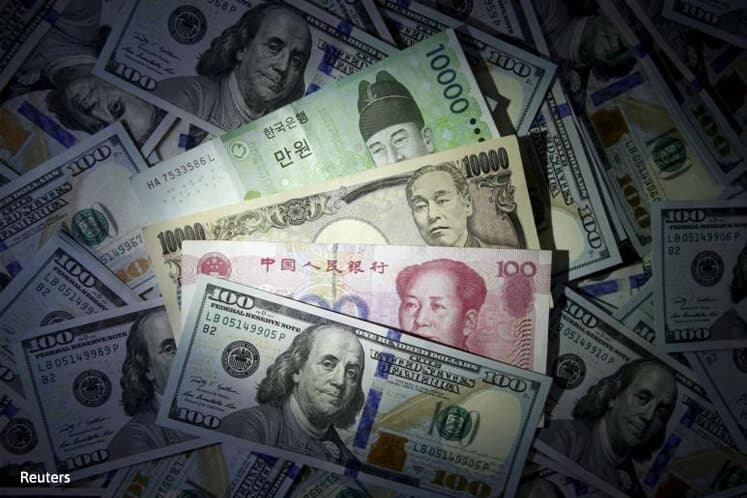
(June 6): Most Asian currencies were marginally easier on Thursday, as U.S. trade tensions with both China and Mexico kept investors wary of emerging markets.
Mexican officials met with their U.S. counterparts for negotiations on tariffs and immigration in Washington on Wednesday, although no there were no signs of progress needed to avert the imposition of U.S. tariffs on Mexican goods next week.
"Asia is likely more exposed to trade tension effect compared to other EM regions," said Morgan Stanley in a note.
The dollar was down 0.16% at 108.286 yen JPY=, relinquishing most of the gains made overnight on initial optimism towards U.S.-Mexcio trade talks.
The Indian rupee led the regional losers on the day, shedding 0.2% against the dollar, as market participants expect the Reserve Bank of India to cut its policy interest rate later in the day.
A Reuters poll of economists conducted at the end of last month had forecast the RBI's monetary policy committee would opt to reduce the rate for the third time since February.
Expectations for a cut hardened after data released last Friday showed India's economy grew at its slowest pace in more than four years in the January-March quarter.
Another Reuters poll found that the rupee will fall further over the next 12 months than previously thought, hit by slowing growth momentum and an escalating global trade war.
The Thai baht also fell 0.16% on worries over its slowing exports and investor aversion toward risky assets.
Thailand's shipping body said this week it had cut its 2019 export growth forecast for a second time in a month, to 1% from 3%, as global demand slows amid mounting trade protectionism.
China's yuan inched lower against a weaker dollar on Thursday, and was set for a second losing week.
South Korea, Indonesian and Malaysian markets were closed for local holidays.